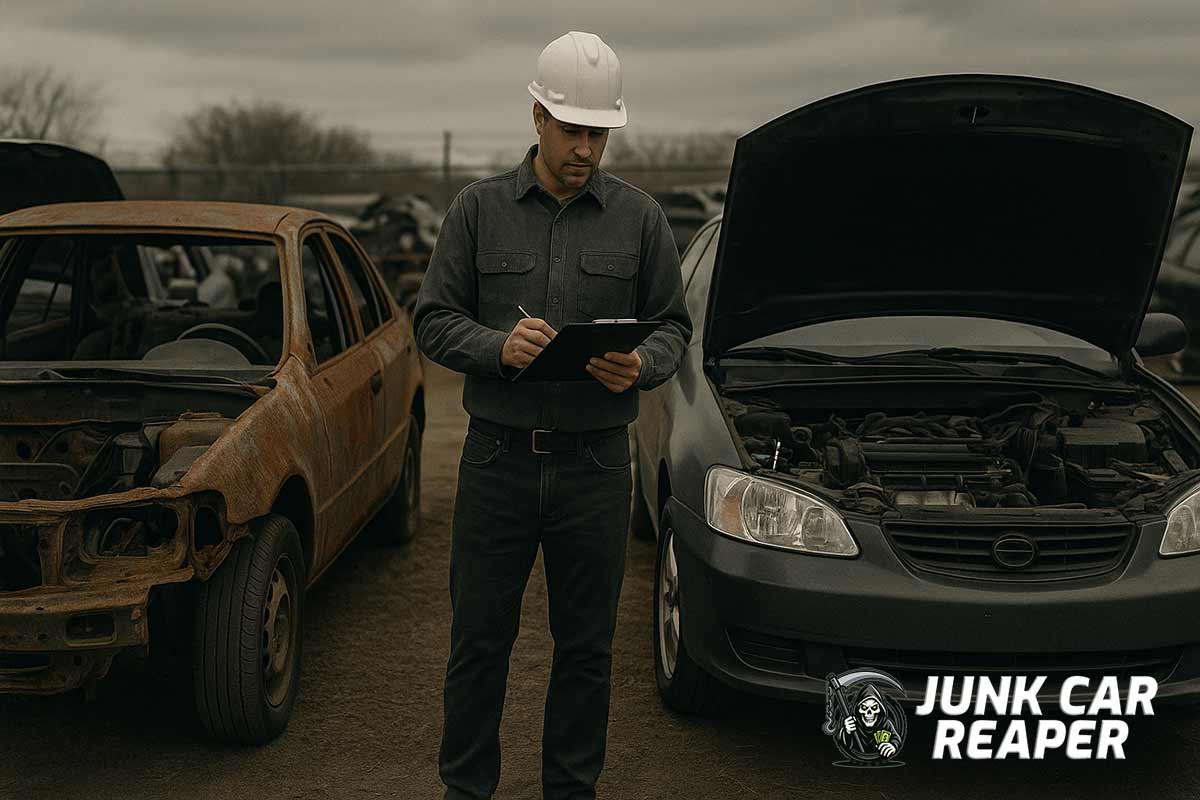Not all junk cars bring the same payout. The centerpiece action here is value. Some cars weigh more, have in-demand parts, or fetch resale interest. Others are stripped shells worth only scrap metal rates. This guide explains why junk car prices vary and how to maximize your payout.
Weight drives scrap value
Scrap yards pay by the ton. Heavier cars and trucks are worth more because they contain more steel and aluminum. A stripped sedan might bring $200 while a full-size SUV can bring $600 or more.
- Small cars: $200–$400
- Mid-size sedans: $300–$600
- Full-size SUVs or trucks: $500–$1,000+
Check real-time rates here: scrap car prices per ton.
Part demand adds extra value
Usable parts like engines, transmissions, and catalytic converters boost payouts. If a model is popular and parts are hard to find, buyers will pay more. High-demand vehicles include pickups, Hondas, and Toyotas.
- Catalytic converters: precious metals
- Aluminum wheels: resale and scrap
- Engines and transmissions: repair market
Condition impacts resale options
A running car with high miles may sell for more than a non-running shell. Buyers can resell or auction it. Wrecked or flooded cars usually go straight to scrap and bring less.
Attribute triplets: Mechanical (blown engine, bad transmission), Physical (frame damage, flood), Legal (salvage title, clean title).
Make, model, and year affect pricing
Some brands hold value better because of demand for parts and resale. A late-model Ford F-150 is worth more than a 1990s sedan even if both are junk. Buyers factor in current market trends when setting offers.
- Popular trucks and SUVs bring more
- Luxury brands have higher part value
- Obscure or rare cars may fetch less
Scrap metal prices change daily
Scrap metal markets move with global demand. Steel, aluminum, and copper prices affect your payout. When rates are high, junk cars are worth more. When markets dip, offers drop. Timing your sale can add $50–$200.
See current averages: scrap value of a car.
Location makes a difference
City demand, towing distance, and local scrap yard competition affect pricing. A car in a major metro with multiple buyers may fetch more than one in a rural area with limited demand.
- Urban markets: more buyers, better offers
- Rural markets: fewer buyers, lower offers
- Regional demand: rusted cars common in Midwest, flooded cars common in Gulf states
FAQs
Are junk cars with titles worth more?
Yes. A clean title means faster resale, so offers are stronger. Without a title, paperwork adds time and may reduce payout. Learn how here: sell a junk car with no title.
Does mileage matter when junking a car?
Not much. Buyers care more about weight and parts. High miles do not kill the value if key parts are still good.
Do dealerships pay more for junk cars?
Rarely. Dealers pay more for trade-ins they can resell. True junk cars get low offers at dealerships. Learn more here: do dealerships buy junk cars.
One quote. One visit. One payday.
The Reaper pays what your junk car is really worth. We factor in scrap, parts, and demand. No lowballs. No fees. Just cash in hand.

